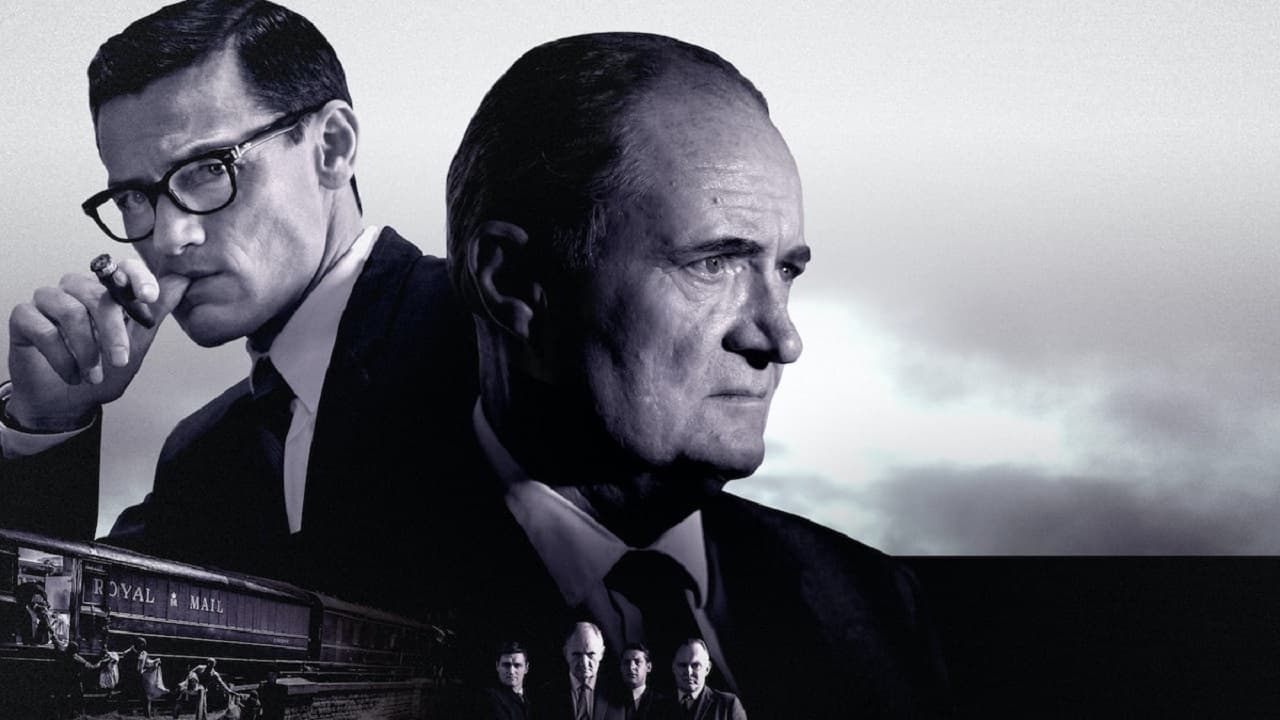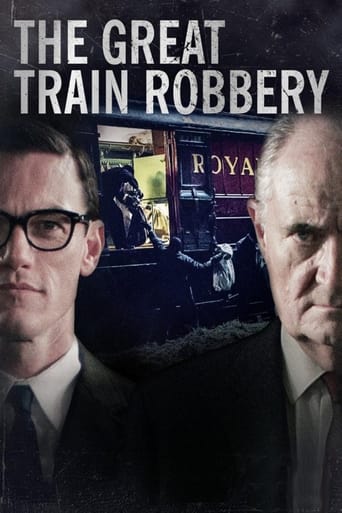

"The Great Train Robbery" is a miniseries in two parts. The first part focuses on mid-range crooks, led by Bruce Reynolds (Luke Evans) who decide to rob a train carrying a fortune in money. The second is about the police investigation and search for them.I really enjoyed the first part, but the second part for me was a let- down. The criminals were more interesting than the police, led by DI Frank Williams (Robert Glenister) for some reason. And I sort of wanted them to get away with it. I'm sure that sounds terrible.The acting is very good, and since it's based on a true story, it was interesting to see how the police picked up the trail of the crooks and to read at the end what happened to them.I do recommend it, but you'll find the second part less compelling.
... View MoreI was born any a couple of months after the great train robbery, back in 1963. And I have always been fascinated by it. My dream would be to go on the actual place where it occurred, the Bridego Bridge. I possess nearly every document about it, footage archive and fiction material. The most memorable, of course, remains Peter Yates's ROBBERY, back in 1967, and the other movie starring the actor starring Derrick - sorry I don't remember his name. Some viewers said on IMDb that this feature was not flawless, concerning details specified to UK, for instances trains and cars from this very era. Well, I have never lived in UK, so...But concerning this film, the only thing that annoyed me was the BOAC company heist, at the beginning. These guys are supposed to be professional robbers with a criminal record as thick as a phone book, and they pull the heist without any gloves !!!! Because finger prints, see? Rubbish. For the rest, it is a terrific piece of work, and the character description is absolutely outstanding. I loved the very ending when Bruce Reynolds tells the hard boiled inspector from SY, who chased them in such a raging way all over the years, that he did not do this for money but for "camaraderie" as he actually said, using a french word meaning companionship, brotherhood among friends. An outstanding face to face between those two adversaries. An authentic masterpiece. But it could have shown the several escapes from jail of some of the great train robbers.
... View MoreI have to agree with the review by Alan Baker as to the factual errors in the episode entitled "A Coppers Tale". I am a nephew of the late Chief Supt Tommy Butler, and although only a young boy at the time of the robbery, I remember distinctly that the car he used during that investigation was a Wolsey that he used to drive himself, I lived en route from Central London to Buckinghamshire (just off of the old A40) and Uncle Tom used to call in for a cup of tea frequently on his way back to London, and i never once saw him being driven by another police officer and definitely not in a Jaguar. Another factual error was that his home as shown in the film looked like a nice suburban semi detached private house, when in reality he lived with my grandmother in a rather shabby terraced council house in Barnes.
... View MoreBroadcast in two parts - "The Robber's Tale" and "The Copper's Tale" - THE GREAT TRAIN ROBBERY retells the famous events of August 1963 when over £2m. was stolen from a mail train traveling from Glasgow to London. The events have been extensively retold elsewhere, notably in Peter Yates' fictionalized version ROBBERY (1967) with Stanley Baker, or BUSTER (1988) a comedy-drama with Phil Collins as robber Buster Edwards. "The Robber's Tale" (dir. Julian Jarrold) focuses specifically on Bruce Reynolds (Luke Evans) as the brains behind the whole operation; the more celebrated crook Ronald Biggs (Jack Gordon) - who passed away the night the program received its first broadcast - receives scant attention. "The Copper's Tale" looks at the painstaking ways in which Tommy Butler (Jim Broadbent) went about investigating the case and bringing the criminals to justice. Stylistically speaking the production is very much in keeping with current British television costume dramas, with low-key, almost washed-out lighting, lots of period detail (for example, the obligatory London bus from the mid-Sixties) passing across the back of the frame, or a couple of young mothers pushing their prams round the park) and plenty of focus on character through shot/reverse shot sequences. The style is diffuse, with the emphasis placed on ambiance as much as plot. "The Robber's Tale" actually proves something of a disappointment; not a lot happens in terms of action, while some of the (predominantly youthful) cast simply do not seem convincing as mid- Sixties London hoodlums. Perhaps they might have done more research into the behavior, mannerisms and (most significantly) the argot of that period. "The Copper's Tale" is a lot better, not least because of the interplay - or should that be rivalry - between Butler and his immediate subordinate Frank Williams (Robert Glenister). Although ostensibly on the same side, they seem unable to form a united front, at least professionally. Butler might be a good cop, but he certainly lacks any management abilities.
... View More